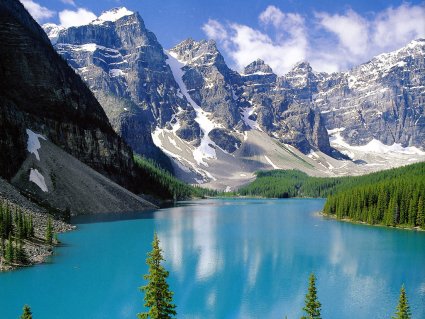Universities and Colleges in Canada
In Canada, the constitutional responsibility for higher education rests with the provinces of Canada. The decision to assign responsibility for universities to the local legislatures, cemented in the British North America Act, 1867, which was renamed the Constitution Act in 1982, was contentious from its inception. The Act states that "in and for each Province, the Legislature may exclusively make laws in relation to Education".
As a result of this constitutional arrangement, a distinctive system of education, including higher education, has evolved in each province. However, as the constitutional responsibility for Aboriginal Peoples with Treaty Status rests with the federal government of Canada under the Constitution Act of 1982, it is the federal government that is largely responsible for funding higher education opportunities for Aboriginal learners, whether in traditional post-secondary institutions or in settings that promote opportunities to pursue indigenous education. The federal government also operates the Royal Military College of Canada.
The higher education systems in Canada's ten provinces include their historical development, organization (e.g., structure, governance, and funding), and goals (e.g., participation, access, and mobility). Each of the three territories in Canada (i.e., Nunavut, Northwest Territories, and Yukon) have separate higher education systems that reflect territorial history, organization, and goals in the context of geographical challenges.
Higher Education in British Columbia
Higher education in British Columbia is delivered by 25 publicly funded institutions that are composed of eleven universities, eleven colleges, and three institutes. This is in addition to three private universities, five private colleges, and six theological colleges. There are also an extensive number of private career institutes and colleges.
In 2007, the population of British Columbia (BC) stood at 4,383,000.[2] Approximately 433,000 people were enrolled in public post-secondary institutions in BC during the 2006-2007 academic year. More than 17,250 identified themselves as Aboriginal students and approximately 10,500 were international students. In the 2011 calendar year, 151,774 applications took place through BCcampus, a publicly funded organization whose role is to support higher education by providing leadership in the use of ICT (Information and Communications Technology).
Higher Education in Ontario
Higher education in Ontario includes postsecondary education and skills training regulated by the Ministry of Training, Colleges, and Universities and provided by universities, colleges of applied arts and technology, and private career colleges. The current minister is Brad Duguid who was appointed in February 2013. The ministry administers laws covering 22 public universities, 24 public colleges (21 Colleges of Applied Arts and Technology (CAATs) and three Institutes of Technology and Advanced Learning (ITALs)), 17 privately funded religious universities, and over 500 private career colleges. The Canadian constitution provides each province with the responsibility for higher education and there is no corresponding national federal ministry of higher education. Within Canadian federalism the division of responsibilities and taxing powers between the Ontario and Canadian governments creates the need for cooperation to fund and deliver higher education to students.
From Wikipedia, the free encyclopedia

- > Whistler Adventure School, British Columbia
- > Centennial College, Toronto, Ontario
- > Sprott Shaw College, Vancouver
- > Tamwood Careers Global Start up School, Vancouver, British Columbia
- > Royal Roads University's Global Learning and Language Centre (GLLC), Victoria, British Columbia
- > Vancouver Film School, Vancouver, British Columbia
- > Canadian College, Vancouver, British Columbia
- > Thompson Rivers University, Kamloops, British Columbia
- > Class Afloat 2024-2025 West Island College Canada
- > The University of Winnipeg, Winnipeg, Manitoba
- > LaSalle College, Vancouver, British Columbia
- > St. Francis Xavier University, Antigonish, Nova Scotia
- > Sheridan Institute of Technology, Oakville, Ontario
- > Discovery Community College, Campbell River, British Columbia
- > Canadian Tourism College (CTC), Vancouver, British Columbia
- > Camosun College, Victoria, British Columbia
- > Capilano University, Vancouver, British Columbia
- > Arbutus College, Vancouver, British Columbia
Whistler Adventure School Whistler, British Columbia

The typical WAS student enrolled in our programs love the outdoors, mountains and an active life style with an inner desire to share this through their art and love of technology.
Whistler’s reputation as the world’s best bike park as well as home to some of the best skiing and snowboarding lends itself to people who are active, driven and enthusiastic about pursuing their dreams.
Ski & Snowboard Guide and Alpine Guide Training; Rock Guide and Bike Guide Training; Adventure Tourism Winter Training
Duration: 6 mnths
Level: diploma Price: CAN$ 5 - 7,000
Whistler Adventure School

 Higher Education Institutes
Higher Education Institutes
in Canada
The following higher education institutes in Canada are on offer through StudyCanada EU. If you need more information, or would like to apply with any of these schools, please write to StudyCanada EU <- click for e-mail
Higher Education (Universities, University Colleges, Technical Institutes and Colleges)
Capilano University, North Vancouver, British Columbia
Royal Roads University International Study Centre, Victoria, British Columbia
St Francis Xavier University, Antigonish, Nova Scotia
The University of Winnipeg, Winnipeg, Manitoba
Thompson Rivers University, Kamloops, British Columbia
Career Colleges
Arbutus College of Communication Arts, Business and Technology, Vancouver, British Columbia
Camosun College, Victoria, British Columbia
Canadian College, Vancouver, British Columbia
Canadian Tourism College, Vancouver, British Columbia
Centennial College, Toronto, Ontario
Discovery Community College, Campbell River, British Columbia
LaSalle College, Vancouver, British Columbia
Sheridan Institute of Technology and Advanced Learning, Oakville, Ontario
Vancouver Film School, Vancouver, British Columbia
West Island College, Class Afloat (Boarding College at Sea)
Whistler Adventure School, British Columbia
To get more information on study in Canada, please write to StudyCanada EU <- click for e-mail






